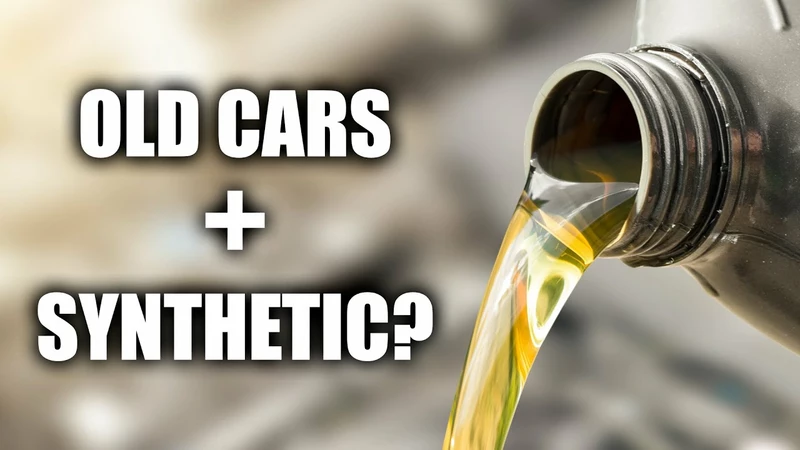Is synthetic oil bad for older cars?

A persistent controversy surrounding synthetic oils is whether they can be used in older vehicles. In this "Engineering Explained" video, Jason Fenske answers that question. The video is part of a series sponsored by Mobil 1 that gave Fenske the opportunity to ask the company's engineers questions about motor oil.
In short, yes, synthetic oil can be used in older cars. Even classic cars have synthetic oil options, and Porsche has been filling its cars with synthetic oil at the factory since 1996, Fenske said. But as always, he notes, it's best to check the manufacturer's recommendations.
Synthetic oils have been around since the 1970s, so why would anyone think they can't be used in older cars? Some of the early synthetic oils damaged engine seals, Fenske says, but companies have since changed formulations and tested them for compatibility, especially with seals.
Another myth about synthetic oils is that they clean the engine more thoroughly, exposing oil leaks. No one wants their engine to leak oil, but if all you can prevent is sludge and other deposits, you have a much bigger problem.
Fenske also discusses the use of thicker oil in older engines. While it is generally best to use the manufacturer's specified oil weight, wear can change the clearances in the engine. In such cases, thickening the oil may help, but it is only a last resort for worn engines. Also, oil leaks cannot be stopped because they are associated with seal failure.
All of these questions relate to older engines for which the manufacturer sells high-mileage oil. High-mileage oils typically contain a swollen agent to recondition the seals and help reduce the amount of oil that leaks, Fenske says. They are also slightly heavier than comparable standard oils, which helps reduce oil consumption, he says. After all, high-mileage oil cannot undo the effects of time.





